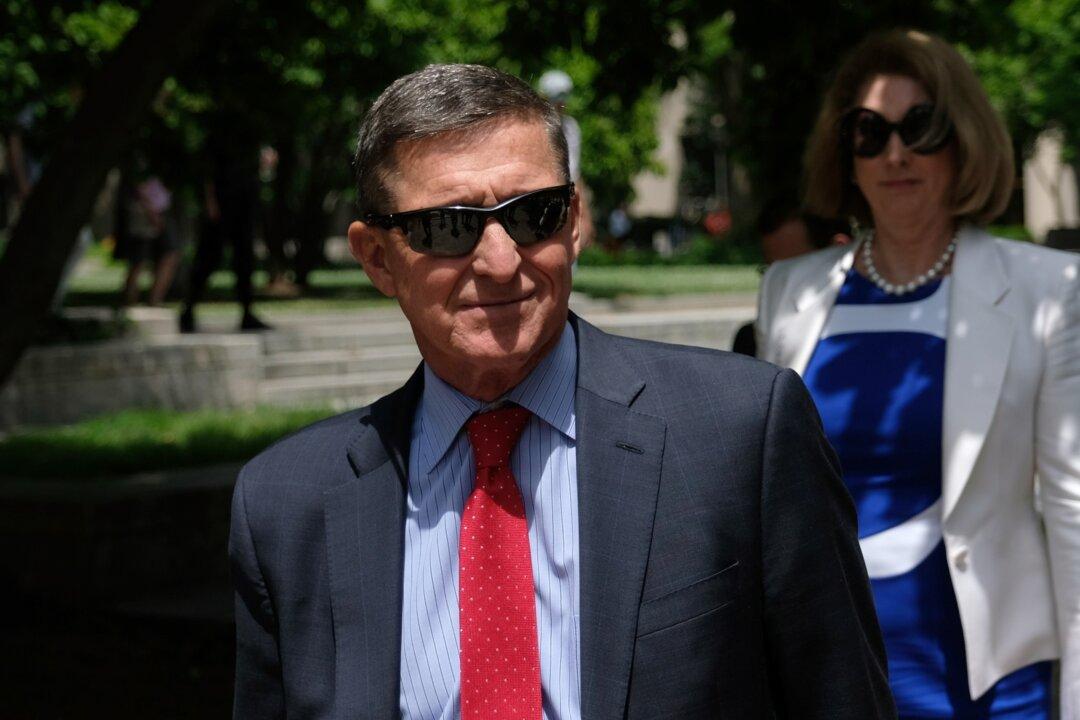WASHINGTON—Michael Flynn, a former adviser to President Donald Trump, wouldn’t have pleaded guilty to lying to the FBI if the government had provided his defense exculpatory information, said Sidney Powell, a former federal prosecutor hired by Flynn earlier this year after he fired his prior lawyers.
Flynn admitted in late 2017 to lying to the FBI during an early 2017 interview, as well as lying on the foreign lobbying disclosure forms for his now-defunct consultancy firm. As part of his plea deal, he was only charged with one count of lying to the FBI.





